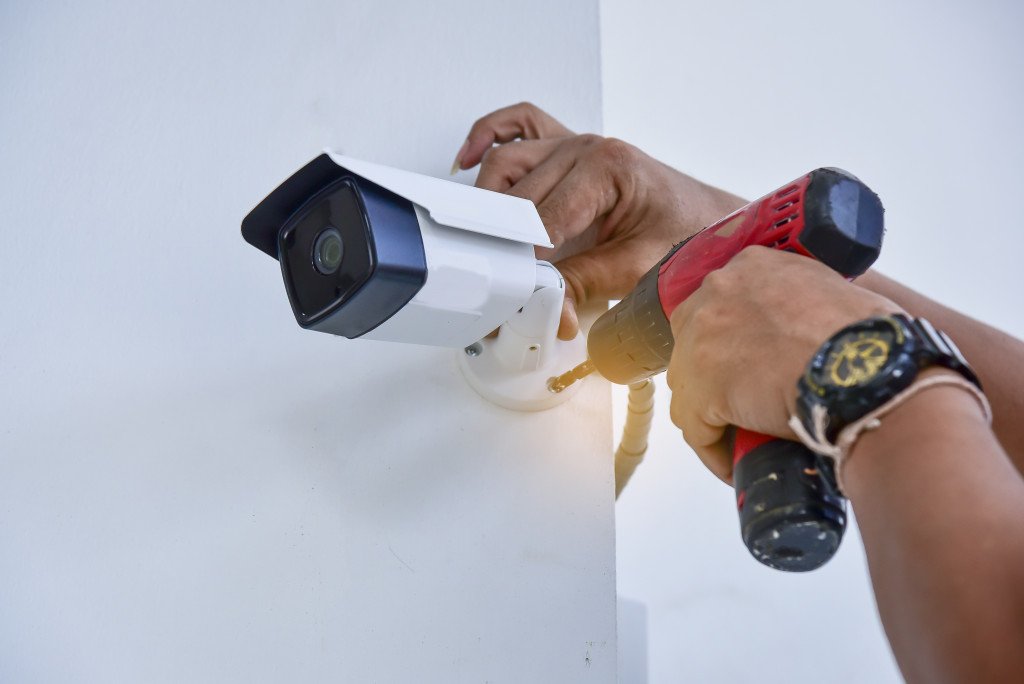Burglary is a major risk for all businesses. An average of 7% annual revenue is lost to businesses every year due to shoplifting, fraud, or theft. On top of that, 95% of businesses fall victim to some theft, and 33% of all business bankruptcies can be due to employee theft. Without a doubt, no matter how small or big your business is, you can’t afford to ignore this risk.
Just two years ago, the Jeffree Star Cosmetics warehouse heist took the internet by storm. The YouTuber turned makeup mogul claimed that $2.5 million worth of the then-unreleased concealers were stolen. Upon working with the FBI and his own private investigator, Star discovered that the burglars cut a hole into the warehouse’s roof, took the products, and fled through the rear roll-up door.
This incident shows that investing in a heavy-duty security system is indispensable for all businesses. To do just that, note these solid security pointers:
1. Install Security Cameras
This is now a no-brainer; because of the prevalence of theft in homes and businesses, installing security cameras has become a standard in all kinds of real properties. Security cameras serve two basic purposes: investigation and deterrence. Choose a high-definition model with a night mode setting so that you can make out faces in the dark. Luckily, though, burglars flee the moment they spot a security camera. But still, don’t settle for low-quality models because deterrents don’t guarantee that burglars won’t really take their chances.
Besides, it’s not only burglars who might steal from your business, but your own employees themselves. Embezzlement costs U.S. businesses a total of $50 billion a year. So by installing CCTV cameras inside and outside your premises, you can discourage this crime in your business.
2. Install Durable Fences Outside the Premises
This is another no-brainer security measure. But given that many burglars can climb on fences, you need a style and type of fence that’s intentionally designed for security. Below are some examples of the most secure fence types:
- Vinyl: This low-maintenance material is hard-wearing, so it can’t be warped, split, and suffer rot and blisters.
- Composite: Top-quality composite fencing is good for both aesthetic and security purposes. If you run a resort, wellness retreat, or events place, this material will serve you best, with its wood-like look and streamlined design.
- Wrought-iron: Wrought-iron is more common in homes, especially stately mansions, but they are fit for commercial properties, too. Like composite, they’ll also look good in hospitality businesses.
- Chain-link: This material can fall short on the aesthetic side, but in industrial settings like warehouses or manufacturing plants, they will look appropriate. Barbed wires are often installed on top of chain-link fences for additional security.
- Aluminum: Aluminum has replaced cast iron as a standard fence material. It’s popular in residential and commercial properties and has a bit of an industrial appeal. As such, it might suit warehouses, manufacturing plants, and other similar settings.
3. Use High-security Deadbolts
Of course, a durable fence should come with a high-security deadbolt. Deadbolts come in two models, a double cylinder and a single cylinder. The former requires a key to be operated from either side of the gate or door, while a single cylinder can be unlocked or locked from inside by just a thumb turn.
A double cylinder deadbolt offers better security but might inconvenience you in times of emergency. For example, if your building burns, you might have difficulty evacuating because you fumbled for the keys. Luckily, some manufacturers offer a “captive thumb turn” key, a single-cylinder deadbolt that can turn into a double cylinder type. Consider that model so you can have the benefits of both.
4. Control Your Keys
With business security so focused on cyber threats these days, it’s easy to overlook physical threats and risks, such as who has control over your workplace’s metal keys.
Identify which rooms in your business are only accessible via keys. Stress the rooms or storage units keeping the most crucial stuff, like registration papers, financial documents, and HR files. Protect those work materials by being strict on who can handle the keys for those. Only hand over duplicates to staff whom you fully trust. Using digital locks is also good, but if it’s breached, you’d have no way to tell who’s the culprit unless you have security cameras in the area. But with metal keys, it’ll be easier to identify suspects because you know who among your team handles those keys.
High-tech security systems might be the trend these days, but nothing will truly beat physical security measures. If burglars can cut a hole into your property and take stuff to their heart’s content, no amount of cybersecurity system would’ve prevented that. So if you deal with products, especially high-value ones, invest more in physical security.

